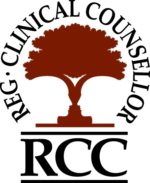About Karla
Get to Know
Karla Dolinsky
I was born in the Prairies and grew up on a farm. I think that gave me a very practical approach to life, with a whimsical delight in the world around me. Living on a farm, I saw the world as a beautiful place, that included birth, death, tragedy, joy, spring blossoms, cows breaking out from the fence and needing to be rounded up and brought back, calves that needed training to to be led. Imagine a scrawny 10 year old girl trying to lead an unruly calf that outweighs her by almost half as much again!
I studied Linguistics and Neuropsychology to earn my Bachelor of Science degree from the University of Victoria, in Canada. I continued my studies at the University of Alberta to earn a Master of Science degree in Psycholinguistics. One of my first ‘career’ jobs was to work at the Maudsley Hospital in London England, on the Autism Project led by Sir Michael Rutter, in the Institute of Psychiatry, King’s College London. My career has taken me on many adventures, living and working in a variety of countries, on a variety of projects.
I currently work as a Registered Clinical Counsellor based in Victoria, Canada, working in Private Practice. My focus is on complex trauma, grief & loss, First Responders, critical or terminal illness diagnosis (specialty in working with dementia diagnosis), challenges with relationships & communication, and helping clients move through challenging transitions in life. I’ve completed intensive studies with Dr. Gabor Mate and with Dr. Gordon Neufeld, and have advanced training in EMDR for trauma.
I also work as a Trainer at the Complex Trauma Institute (CTI) in York, England. One of my roles is to work as a Clinical Supervisor to other Psychotherapists.
https://www.complextraumainstitute.org/about-us.
I’ve been published in the Journal Perspectives on Complex Trauma, and am part of the Complex Trauma Therapist Network (CTTN).
I will be presenting at the upcoming conference on the topic of: Complicated Grief – when we are estranged from or unable to connect with those who are dying.
https://www.complextraumainstitute.org/conferences
I have contributed to the training materials on Trauma, Grief & Loss for the Canadian Virtual Hospice, a National online resource for professionals and those who require support in their grief.
I enjoy traveling to explore other cultures, architecture, food, music, traditions. I also enjoy exploring the wilderness, and find forests and the sea to be energising and calming, restorative.
Why Choose Karla
I am first trained in 'life' and matters of the heart. I then studied interpersonal skills, communication & therapy skills to assist our hearts and our minds when we find ourselves in uncharted waters or not able move within our optimal potential.
Often, we find ourselves in a period of growth and discovery that we were not expecting, or that we wish we could avoid.
Sometimes, we know something is ‘off’, but we are not sure what it really is.
I can help with that.
ICBC
CVAP
Practical
We will address the concerns of the moment while attending to the wounds that require more time to build skill, insights and to facilitate healing & understanding.
Dignity
Dignity, respect and social justice are central to my work. We take time to become curious and explore your situation so that healing is specific to you.
Experience
I have lived in and moved through many situations in my life: in loss, trauma, chronic pain, grief, joy, accomplishment - I have trained and worked within a vast array of scenarios.
My experience helps me connect to your situation in an authentic way, not bound to a textbook.
Community
Throughout my life it has been important to me to be connected to the community, through volunteering (Cridge Centre, Alzheimer Society of BC), service work (I am a proud member of Rotary), and engagement with organisations working with Youth.
Person-focussed Therapy
Karla's Approach
I like people, and feel that we each have a unique path, with unique histories and unique challenges throughout our lives.
I have seen counsellors in the past listen briefly to a client and quickly label or diagnose based on a few ‘facts’ – basically using a textbook theory and fitting the current client and their history, experiences, challenges, traumas, hearts, wonder, fears, delights, into a box, a mold that was created by an academic who fitted traits with labels.
I don’t do this.
